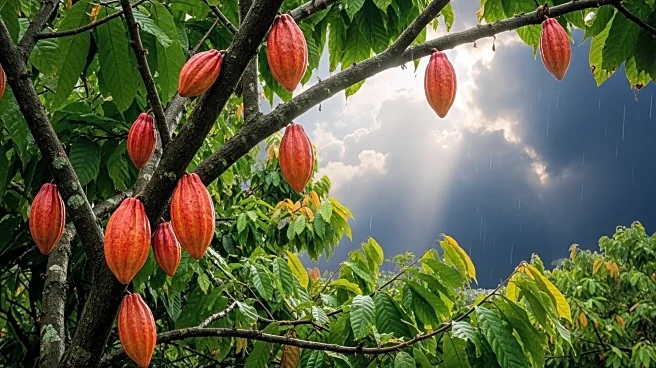What's Happening?
Cocoa production is under threat from black pod disease, a fungal infection exacerbated by climate change. The disease thrives in wet conditions and is currently impacting yields in Cameroon, the world's fifth-largest cocoa producer. Intense rainfall since July has created ideal conditions for the disease to spread, further worsened by counterfeit agrochemicals from Ghana and Nigeria. Black pod disease attacks various parts of the cocoa pod, leading to significant yield losses. This crisis adds to existing challenges posed by the cacao swollen shoot virus, which affects key cocoa-growing regions like Côte d’Ivoire and Ghana.
Why It's Important?
The spread of black pod disease poses a significant risk to the global cocoa industry, potentially leading to increased prices and supply shortages. Cocoa is a vital commodity for many economies, and disruptions in production can have far-reaching effects on chocolate manufacturers and consumers worldwide. The disease's impact on yields threatens the livelihoods of farmers in affected regions, exacerbating economic challenges. The situation highlights the need for effective disease management strategies and the importance of addressing climate change's role in agricultural vulnerabilities.
What's Next?
Efforts to combat black pod disease will likely focus on improving disease management practices and developing resistant cocoa varieties. International cooperation may be necessary to address the issue of counterfeit agrochemicals and support affected farmers. The cocoa industry may need to invest in research and technology to enhance resilience against climate-related challenges. Stakeholders, including governments and agricultural organizations, will play a crucial role in implementing solutions and supporting sustainable cocoa production.










